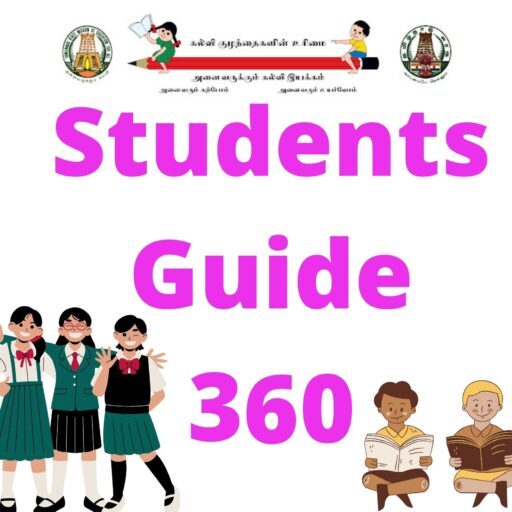6th Social Science Term 1 Unit 1 What is History
6th Standard Social Science Term 1 Lesson 1 What is History
6th Standard Social Science Term 1 Lesson 1 What is History? Book Back Question and answers English Medium download pdf. 6th All Subject Text Books download pdf. 6th Social Science Term 1 Guide. 6th All Subject Book Back Answers. 6th Social Science Samacheer kalvi guide.

6th Social Science Term 1 Unit 1 What is History
I. Choose the correct answer
1. What was the step taken by the early man to collect his food?
- Trade
- hunting
- painting
- rearing of animals.
Ans : hunting
II. Match the statement with the Reason. Tick the appropriate answer:
1. Statement: Pre historic man went along with the dog for hunting.
Reason: Dogs with its sniffing power would find out other animals.
- Statement is true, but reason is wrong.
- Statement and reason are correct.
- Statement is wrong, and reason is correct.
- Both statements and reasons are wrong.
Ans : Statement and reason are correct.
2. Statement: The objects used by the early man are excavated. They are preserved to know the lifestyle of the people.
Find out which of the following is related to the statement:
- Museum
- Burial materials
- Stone tools
- Bones
Ans : Museum
3. Find out the wrong pair:
- Old stone age – Stone tools
- Rock paintings – Walls of the caves
- Copper plates – A source of history
- Cats – First domesticated
Ans: Cats – First domesticated
4. Find the odd one:
- Paintings were drawn on rocks and caves.
- There were paintings depicting hunting scenes.
- It was drawn to show his family members about hunting.
- The paintings were painted by using many colours.
Ans : It was drawn to show his family members about hunting.
III. Fill in the blanks
- The Old Stone Age man lived mostly in ____________________ .Ans : caves
- __________________ is the father of history.Ans : Herodotus
- ________________ was the first animal tamed by Old Stone Age man.Ans : Dog
- Inscriptions are ________________ sourcesAns : archaeological
- Dharma Chakra has ________________ spokes.Ans : 24
IV. State True or False
- Stone tools belonging to Old Stone Age have been excavated at Athtirampakkam near Chennai.Ans : True
- The materials used by the ancient people are preserved in the museums by the Archaeological Department.Ans : True
- During the period of Ashoka, Buddhism spread across the country.Ans : True
V. Match the following:
- Rock paintings – copper plates
- Written records – the most famous king
- Ashoka – Devaram
- Religious Literature – to understand the lifestyle
Ans : 1 – D, 2 – A, 3 – B, 4 – C
VI. Answer in one word:
1. Can you say any two advantages of writing diary?
- Diary writing helps to records the events.
- It reveals the life style of people that period.
2. How do we know the people’s lifestyle of the Old Stone Age?
- We understand the life style of people of old stone age from used stone tools, ,their paintings on the rocks and walls of the caves.
3. Is inscription a written record?
- Inscription is a written record.
4. What is proto history?
- Proto History is the period between pre-history and History.
5. Name an epic?
- Ramayana, Mahabharatam, Manimegalai.
VII. Answer the following:
1. What is history?
- History is a record of past events in chronological order.
- The term History has been derived from the Greek word historia which means learning by enquiry.
2. What do you know about the pre historic period?
- The period between the use of first stone tools and the invention of writing system is pre-history.
- Stone tools, excavated materials and rock paintings are the major sources of prehistory.
3. What are the sources available to know about the pre-historic period?
- Paintings on the rocks and the walls of the caves, stone available to know about the prehistoric period.
4. Mention the places from where we got pre-historic tools.
- We find the pre-historic tools at Kondapur, Nevasa, Mehrgash, Rock shelters of Bhimbetka and Edakkal caves in India. In TamilNadu Athiram Pakkam, Ariyalur, Perambalur, Adichanalur are the places where we came across the pre-historic tools.
5. What are the benefits of a museum?
- Museums are community centres designed to inform and reach the public.
- Museums are the care takers of History as much as they offer connections to History.
- The Educational benefit of a museum is academic learning.
- Children’s curiosity comes out in the form of questions.
- Students are exposed to new ideas and concepts.
6. Name some tools used by early man to hunt animals.
- Blade cores were used; these were chunks of sharp rocks.
- An end scraper is a tear-drops shaped piece of stone used to scrap fur and fatty tissue from the hides of animals.
- Burins were stone tools with a rounded grapping end and at sharp, razor like working end.
- Awls were small circular stone flakes.
7. Why were paintings drawn on rocks?
- Painting could have been drawn or future generations.
- They might have wished to record paintings.
8. Name any two artefacts?
Potteries, Toys, tools and ornaments.
- An artefact is something made or given shape by man as a tool or a work of art, especially an object of archaeological interest.
- Some of the artefacts are potteries, toys tools and ornaments.





